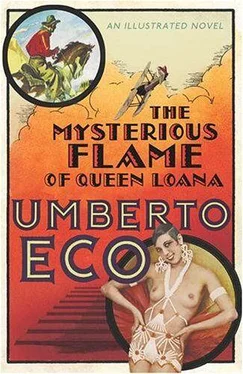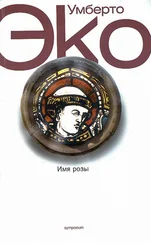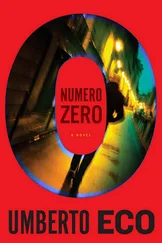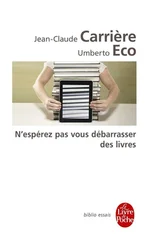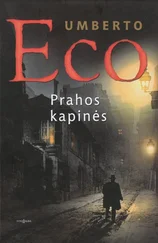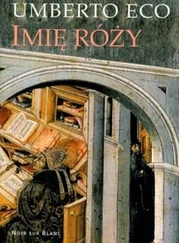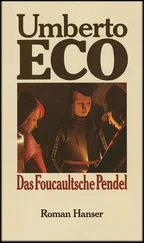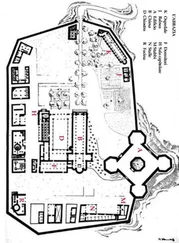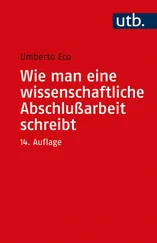Umberto Eco - The Mysterious Flame Of Queen Loana
Здесь есть возможность читать онлайн «Umberto Eco - The Mysterious Flame Of Queen Loana» весь текст электронной книги совершенно бесплатно (целиком полную версию без сокращений). В некоторых случаях можно слушать аудио, скачать через торрент в формате fb2 и присутствует краткое содержание. Жанр: Исторический детектив, на французском языке. Описание произведения, (предисловие) а так же отзывы посетителей доступны на портале библиотеки ЛибКат.
- Название:The Mysterious Flame Of Queen Loana
- Автор:
- Жанр:
- Год:неизвестен
- ISBN:нет данных
- Рейтинг книги:3 / 5. Голосов: 1
-
Избранное:Добавить в избранное
- Отзывы:
-
Ваша оценка:
- 60
- 1
- 2
- 3
- 4
- 5
The Mysterious Flame Of Queen Loana: краткое содержание, описание и аннотация
Предлагаем к чтению аннотацию, описание, краткое содержание или предисловие (зависит от того, что написал сам автор книги «The Mysterious Flame Of Queen Loana»). Если вы не нашли необходимую информацию о книге — напишите в комментариях, мы постараемся отыскать её.
The Mysterious Flame Of Queen Loana — читать онлайн бесплатно полную книгу (весь текст) целиком
Ниже представлен текст книги, разбитый по страницам. Система сохранения места последней прочитанной страницы, позволяет с удобством читать онлайн бесплатно книгу «The Mysterious Flame Of Queen Loana», без необходимости каждый раз заново искать на чём Вы остановились. Поставьте закладку, и сможете в любой момент перейти на страницу, на которой закончили чтение.
Интервал:
Закладка:
Finally, the color: the attic’s dominant color, imparted by the roof beams, by the crates piled here and there, by the remains of wobbly chests of drawers, is the color of carpentry, composed of many shades of brown, from the yellowish-brown of unfinished wood to the warmth of maple to the darker tones of old dressers, their finishes flaking off, to the ivory of old papers overflowing their boxes.
If a cellar prefigures the underworld, an attic promises a rather threadbare paradise, where the dead bodies appear in a pulverulent glow, a vegetal elixir that, in the absence of green, makes you feel you are in a parched tropical forest, an artificial canebreak where you are immersed in a tepid sauna.
I had thought cellars symbolized the welcome of the mother’s womb, with their amniotic dampness, but this aerial womb made up for that with an almost medicinal heat. And in that luminous maze, where if you pushed aside a couple of roof tiles you would see the open sky, a complicit mustiness hung in the air, the odor of silence and calm.
After a while, however, I no longer noticed the heat, gripped as I was by the frenzy of discovery. Because my Clarabelle’s treasure was certainly there, though it would take a lot of digging and I had no idea where to begin.
I had to tear a lot of spiderwebs: the cats had taken care of the mice, as Amalia had said, but Amalia never worried about the spiders. If they had not overrun everything, it was thanks to natural selection; one generation died and their webs crumbled away, and so on, from season to season.
I began rummaging through several shelves, at the risk of toppling the stacks of containers that had accumulated there. My grandfather, apparently, had also collected containers, especially colorful metal ones: illustrated tins of Wamar biscotti showing cherubic children on swings, an Arnaldi cachet box, the Coldinava pomade tin with the gold borders and the plant motifs, a box of assorted Perry nibs, a sumptuous, shiny coffer of Presbitero pencils, all still perfectly aligned and untouched, like a scholar’s ammo belt, and finally a can of Talmone cocoa featuring an old woman tenderly offering that easily digested beverage to a smiling old man, ancien régime , still wearing breeches. I could not help identifying the elderly couple with my grandfather and the grandmother I must have barely known.
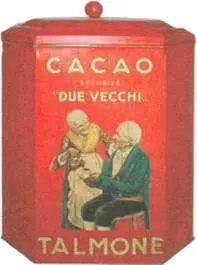
Next I came across a tin, late-nineteenth-century in style, of Effervescente Brioschi. A couple of cheerful gentlemen are tasting flutes of table water proffered by a charming waitress. My hands remembered first: you take an envelope containing a soft white powder, you pour it slowly into the neck of the bottle after it has been filled with tap water, and you swirl it around a little to make sure no powder sticks to the neck; then you take another envelope, which contains a grainy powder made of tiny crystals, and you pour that in too, and quickly, because the water begins to seethe immediately and you have to hurry to get the cap on and then wait for the chemical miracle to take place in that primordial soup, as the liquid gurgles and tries to bubble out around the rubber gasket. Finally the tempest subsides, and the sparkling water is ready to drink: table water, children’s wine, home-made mineral water. I said to myself: vichy water.
But besides my hands, something else had been set in motion, almost as it had been that day in front of Clarabelle’s Treasure. I looked for another container, this one not a tin but a small carton, definitely from a later period, one which I had opened on countless occasions before we sat down to our meals. Its illustration would have been slightly different: still the same gentlemen, who still were drinking the amazing water from champagne glasses, except that clearly visible on the table before them was a carton identical to the actual carton, and on that second one were depicted the same
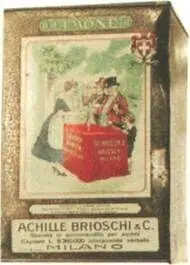
gentlemen, drinking in front of a table on which appeared yet another carton of powder, that one also with gentlemen who… and so on forever. You knew that all you needed was a magnifying glass or a high-powered microscope to see other cartons within cartons, en abîme, like Chinese boxes or Matrioshka dolls. Infinity, as seen through the eyes of a boy who has yet to study Zeno’s paradox. The race toward an unreachable goal; neither the tortoise nor Achilles would ever have reached the last carton, the last gentlemen, the last waitress. We learn as children the metaphysics of the infinite and infinitesimal calculus, though we are unaware of what we are learning, and it might be the image of an Endless Regress or its opposite, the dreadful promise of the Eternal Return and of the turning of the ages that bite their own tails, because upon reaching the final carton, were there such a thing, we might have discovered, at the bottom of that vortex, ourselves, holding the first carton in our hands. Why had I decided to become an antiquarian book dealer if not in order to have a fixed point, the day that Gutenberg printed the first Bible in Mainz, to go back to? At least you know that nothing existed before that, or rather, other things had existed, but you know that you can stop there; otherwise you would be not a book dealer but a decipherer of manuscripts. One chooses a profession that involves only five and a half centuries because as a child one daydreamed about the infinitude of vichy water tins. The attic’s entire accumulation would not have fit in my grandfather’s study or anywhere else in the house, so even in the days when the study was crowded with stacks of papers, a lot of stuff must already have been up there. No doubt that was where many of my childish explorations had been undertaken, my Pompeii, the place I used to go to disinter remote artifacts dating back to a time before my birth. To get a whiff of the past, as I was doing now. Thus I was again enacting a Repetition.
Beside the tin were two cardboard boxes full of packs and cases of cigarettes. So he collected those too, my grandfather, and it must have cost him no little trouble to go out and filch them from travelers, who knows where or from where, because in those days collecting ephemera was not as organized as it is now. They were brands I had never heard of-Mjin Cigarettes, Makedonia, Turkish Atika, Tiedemann’s Birds Eye, Calypso, Cirene, Kef Orientalske Cigaretter, Aladdin, Armiro Jakobstad, Golden West from Virginia, El Kalif from Alexandria, Stambul, Sasja Mild Russian Blend-in sumptuous cases, with images of pashas and khedives and (as on the Cigarrillos Excélsior de la Abundancia) Oriental odalisques, or else spiffy English sailors sporting white and blue outfits and King George (V?) beards. And there were also packs I seemed to recognize, as though I had seen them in some gentleman’s hand, such as the ivory-white Eva or the Serraglio; and finally the flimsy paper packets, crushed and wrinkled, of working-class cigarettes, such as Africa or Milit, that no one would have ever thought to save, that by pure luck had been snatched from the garbage for future memory.
I lingered for at least ten minutes over a flattened, tattered toad of a packet, No. 10 Macedonia Cigarettes, 3 lire, murmuring, "Duilio, the Macedonias are turning your fingertips yellow…" I had still learned nothing about my father, but now I was sure that he had smoked Macedonias, perhaps even those Macedonias, from that very packet, and that my mother had complained about his nicotine-yellow fingertips: "yellow as quinine tablets." A guess at my father’s image based on pale shades of tannin was not much, but it was enough to justify the trip to Solara.
Читать дальшеИнтервал:
Закладка:
Похожие книги на «The Mysterious Flame Of Queen Loana»
Представляем Вашему вниманию похожие книги на «The Mysterious Flame Of Queen Loana» списком для выбора. Мы отобрали схожую по названию и смыслу литературу в надежде предоставить читателям больше вариантов отыскать новые, интересные, ещё непрочитанные произведения.
Обсуждение, отзывы о книге «The Mysterious Flame Of Queen Loana» и просто собственные мнения читателей. Оставьте ваши комментарии, напишите, что Вы думаете о произведении, его смысле или главных героях. Укажите что конкретно понравилось, а что нет, и почему Вы так считаете.
